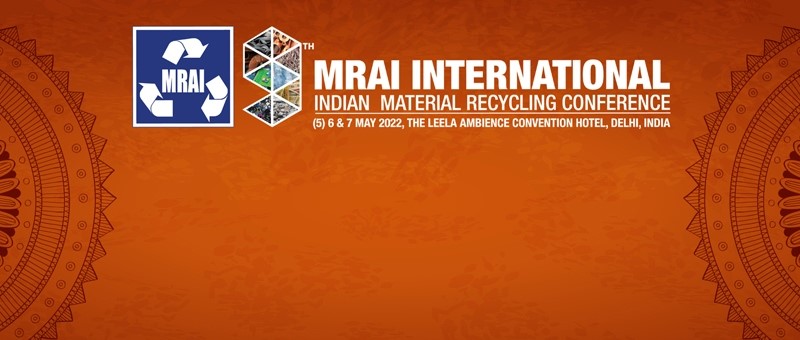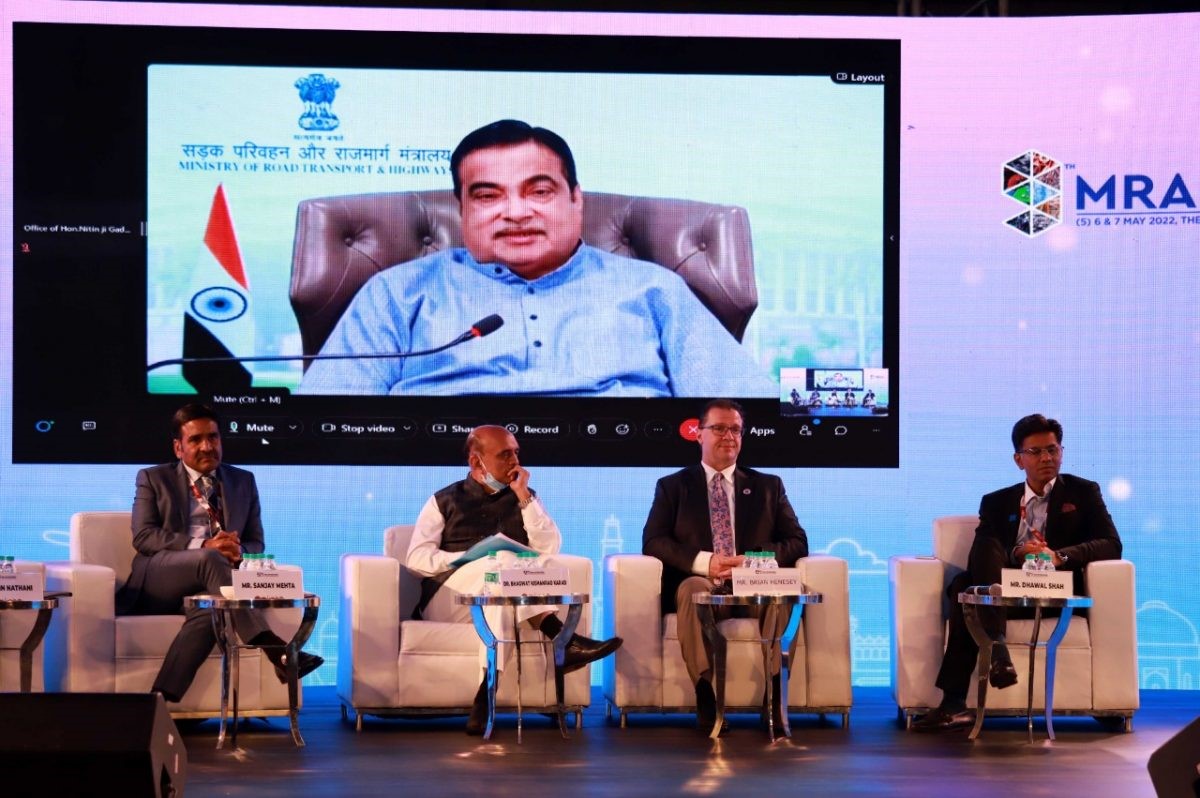

The apex body representing the interest of the Indian recycling industry, the Material Recycling Association of India (MRAI), to make India a global recycling hub, has been precisely working toward developing a circular economy and sustainable recycling operations inside the country.

The 9th IMRC conference which took place on 5th – 7th May 2022 at Leela Convention Centre, Shahdara, Delhi addressed the growing concerns about making India a green superpower by 2030.
Several issues were discussed in the MRAI’s IMRC conference including segregation of waste during generation, use of a minimum percentage of recyclable waste in every manufacturing activity in India, setting up of recycling parks and clusters in India, government tenders to allow recycling materials that comply with BIS, certification of recycling departments under the government of India, single-window clearances for recycling industries, and revision of GST from 18% to 5% for raw materials soon.
Nitin Gadkari, the Minister of Road Transport and Highways, Govt. of India attended the conference virtually, as a chief guest at the plenary session of Day 3. Dr Bhagwat Kishanrao Karad, the MOS in the Ministry of Finance, Brian Henesy of ISRI, Sanjay Mehta, the President of MRAI, Dhawal Shah, the Senior Vice President and Zain Nathani, the Vice President of MRAI were the speakers at the plenary session.

A primary thrust of the IMRC conference was to discuss the challenges that the recycling industry is facing as well as to design a road map for making India a green superpower by 2030 to match the Government of India's ambitious target of carbon reduction.
Speaking at the event, Nitin Gadkari said, "Govt. is ensuring lesser compliance and a simplified process to set up scrap recycling centres through single window clearance centres. Setting up scrapping centres will help in import substitution.”
“The recycling industry will also generate huge employment in India, especially for the weaker section of the society. There is a shortage of semiconductors in India which can also be addressed by scrap processing. The scrapping policy is designed in a way to invite investment from small or big automobile companies to be a part of this industry".
Bhagwat Karad, Ministry of Finance MOS, stated, "150 government PSUs are involved in recycling activities today. Recycling has not played a significant role in protecting the environment and also growing India sustainably".
He further assured by saying, “The revision of GST from 18% to 5% on raw materials for the recycling industry with the GST department, Ministry of Finance.”
The event featured panel discussions on "Indian E-Waste Industry - Time to Synergize, ELV the Road Ahead, A Paradigm Shift: BIS Standards, Plastic Recycling to align with Advance Technology, Circular Economy, Role of Secondary Steel and others."
Sanjay Mehta, the President of MRAI said that “Indian government’s policy thrust on the circular economy becomes an important step to acknowledge the power of recycling. With this, we are very confident that ‘Recovery and Reuse of waste will play a key role in India’s growth story at the time when India is moving towards the manufacturing intensive green economy. We are also flagging off the campaign to sensitize students in schools & colleges to create massive awareness.”
“There is a need to develop recycling parks across the country. Most developed countries have banned cash transactions of scrap and hence we suggest UPI ecosystem."
“Recyclers from across the country opined that GOI should remove duty on metal scrap import, not till India generates sufficient quality and quantity of scrap from the domestic market.”
Dhawal Shah, the Vice President of MRAI said, “There is also a need to unlock the availability and systematic circular flow of domestic scrap. We intend to create massive awareness amongst the masses through our flagship campaign #recycleindia and request the Govt. of India to ably support our initiative. India gives a steel output of 35 to 40%. By 2030, we will make the recycling industry a global hub of material recycling. Our products will be part of the global supply chain. We also request GOI to consider BIS on finished products instead of scrap.”
"Let's recycle not as an option for making money, but as an obligation & responsibility towards future generations", Sanjay Mehta summed up the session.
Insights into the increasing role of secondary steel, Zain Nathani, the Vice President of MRAI said “Secondary steel is playing an important role in making India as Atmanirbhar in the steel industry. Ferrous scrap-based steel will be a key driver to achieve India’s targets set out in the ‘Vision 2047’”.
MRAI Secretary-General, Amar Singh, further commented on the success of the 9th IMRC with more than 1500 delegates participating, “The 9th edition of IMRC took the place at a key juncture when the Indian government has worked out a plan with the launch of policy reforms such as vehicle scrappage policy, EPR on E-Waste, Plastic, Tyre, Batteries, etc. So it’s the right time to invest in the Indian Recycling Industry.”
Responses








